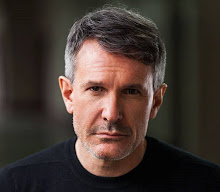Article paru dans The Gazette, le 8 août 2012, page 21.
On September 4th, are Anglo-Quebecers again going to
sleepwalk their way to the ballot box and automatically vote Liberal?
Up till now, that is usually what we’ve done, but perhaps without
excess enthusiasm. With the PQ bent on separation, the inner debate for many of
us began with “Do I have a choice?” ‑ and ended straight after. Of course: there
was no serious alternative to the Liberals. Granted, some of us fled to Equality in 1989, only to return
to the Liberals in 1994. Lesson learned: Anglo-Quebec is better off taking part
in government than sidelining itself.
This time around, Anglos do have a real choice. Mr. Legault
has made it clear that a referendum is off the table for ten years. His Coalition
Avenir Québec promises to devote its efforts to other issues crying out for attention:
ending corruption, improving public schools, getting everyone a family
physician, and others.
Last week in The Gazette, Mr. Charest warned us that Legault
“has been a sovereignist all his life, and is still a sovereignist”. In his
view, that means game over with the Anglo crowd. I’m sorry, but Anglo-Quebecers
need to see beyond this fearmongering.
Let me share an insight. During the run-up to the 1995 referendum,
I was asked by the “No” campaign to draft the manifesto that the federalist
forces would pitch to the people. As it turned out, I wrote the piece that
summer while vacationing with my family in one of those quaint Lower
Saint-Lawrence villages, that one founded by French settlers in the seventeenth
century. Our cottage overlooked the majestic Saint-Lawrence, about 20 km wide
at that point. It was there, even as I was appealing to my fellow Quebecers to reject
separation and build Canada, that I had my epiphany. To many Francophones, the great
river is the cradle of the Quebecois nation; and as much as it is eternal, so
is the recourse option of a sovereign Quebec.
There, I understood that we federalists should not demand
that our fellow citizens of the other persuasion renounce their option forever,
whatever the future may hold. That is simply too much to ask, even of
reasonable people. Some 40% of Quebecers believe in sovereignty. If we wish to
work with at least some of them ‑ those who are as keen as we are on making
Quebec a better place here and now‑, then we need to build bridges to the other
camp’s hill. That is what Mr. Legault, a successful entrepreneur and a seasoned
cabinet minister, has accomplished. His Coalition has enabled former Péquiste
and Liberal adversaries to set aside their differences and work together on key
everyday problems. It now stands as a solid alternative to the Liberals and the
PQ.
In the years following the Second World War, visionary French
and German leaders overcame decades of enmity to establish the core
institutions of what would become the European Union. Closer to home but a
century earlier, Louis-Hippolyte Lafontaine and Robert Baldwin summoned their
contemporaries in Canada East and West to achieve responsible government. These
and other examples of statesmanship might enlighten us today.
When Mr. Charest stigmatizes the CAQ as a bunch of closet
separatists, he is in fact perpetuating the divide that has bogged Quebec for
40 years. A divide that has stymied Quebec’s progress, but that has also conveniently
kept the Anglo crowd in the Liberal corral. That leaves Mr. Charest on the
wrong side of history. The way ahead, now as in other times and places, is to
reach out to former adversaries and find common ground on which to build.
Some of us may support some planks in the CAQ platform and
reject others, just as we might approve or disapprove of some aspects of Mr.
Charest’s tenure. That is normal. But in the greater scheme of things, Anglo-Quebecers
might consider the opportunity that is now ours to seize: to break loose from
the sleeper hold the Quebec Liberal Party has on our community. To have two
major parties chasing the Anglo vote instead of one taking it for granted. And going
forward, to realign Quebec politics for a generation.



